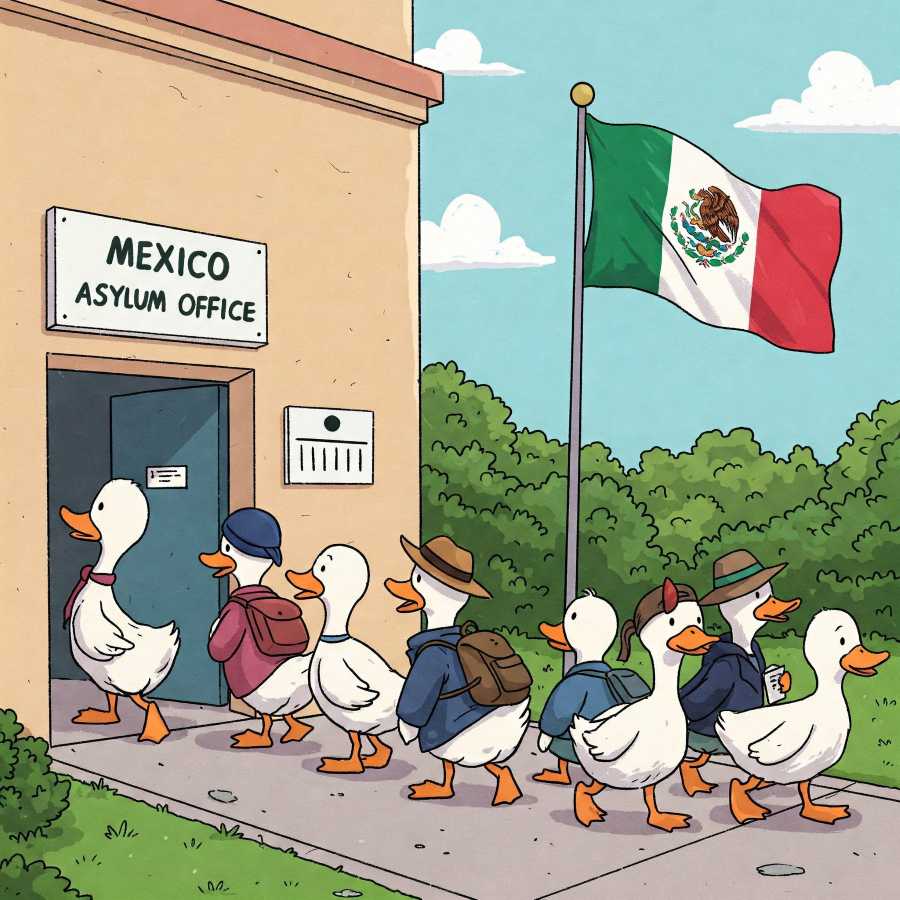How Legal Mandates and Tradition Define Mexico's Asylum
Mexico's foreign policy embraces refuge and political asylum as fundamental legal and humanistic principles, constitutionally guaranteed and historically extended to those fleeing persecution, conflict, and crises, particularly from Latin America.

Mexico's approach to offering refuge and political asylum stands as a deeply embedded feature of its national and international legal frameworks, reflecting a foreign policy long characterized by humanism, particularly towards Latin America and populations fleeing persecution, conflict, dictatorship, or social upheaval.1 This enduring tradition, officials say, is not merely a matter of humanitarian concern but is firmly grounded in the country's constitution and international commitments.
According to María Teresa Mercado Pérez, the Undersecretary of Foreign Affairs overseeing relations with Africa, Asia-Pacific, Europe, and the Middle East, the historical roots of asylum are robust within the Mexican legal system, buttressed by international law and the treaties to which Mexico is a signatory.
Speaking at a recent panel discussion titled "Assessment and Perspectives," Mercado Pérez elaborated on the constitutional bedrock of this policy. She cited Article 11, which enshrines the right of every individual to seek and receive asylum, and Article 89, which legally distinguishes between asylum and refuge. While asylum traditionally addresses persecution based on factors such as race, religion, social group, political opinions, or economic necessity, refuge is specifically granted to individuals persecuted for political reasons whose lives are endangered. She noted that in the context of Latin America, this definition has broadened to encompass situations of widespread violence, internal conflicts, foreign aggression, and mass human rights violations.2
The administrative process for recognizing refugee status in Mexico is managed by the Mexican Commission for Refugee Assistance (COMAR).3 Political asylum, Mercado Pérez clarified, can be sought within Mexican territory or at the country's diplomatic missions abroad, a practice known as diplomatic asylum. Crucially, she emphasized that the granting of diplomatic asylum is not considered an intervention in the internal affairs of the individual's nation of origin, aligning with Mexico's established foreign policy doctrine. This is explicitly recognized in the Law on Refugees, Complementary Protection, and Political Asylum, with the Ministry of Foreign Affairs (SRE) holding the authority to grant such status.
The panel discussion, held at the Center for Research on Latin America and the Caribbean (CIALC) at UNAM, also underscored the academic institution's role in this historical context. Gerardo Torres Salcido, Director of CIALC, affirmed the National University's commitment to national diplomacy and the humanistic tradition of the Mexican state. He acknowledged the university's significant contributions through publications that have documented the experiences of various exiles who have enriched the country's thought, culture, and societal exchanges, providing protection to foreigners persecuted for their political or social standing.
José Francisco Mejía Flores, a researcher at CIALC, presented a review of the historiography of exiles in Mexico over the past quarter-century. His research indicates that scholarly focus has largely been on exiles who arrived in Mexico or interacted with government circles before, during, and after the Mexican Revolution.
Mejía Flores highlighted two primary factors sustaining this area of study. Firstly, the Mexican state has consistently demonstrated a strong defense of the rights of those threatened and seeking asylum or exile. Secondly, Mexico's extensive nearly 3,000-kilometer border with the United States, a major economic, military, and political power, positions Mexico as a significant transit point, a place for association and even conspiracy, and in many instances, a country of long-term residence for those seeking refuge.
The most extensively analyzed group, Mejía Flores noted, are the Spanish exiles who arrived following the Spanish Civil War. However, research also includes significant groups from the Southern Cone who fled dictatorships between the mid-1960s and the 1980s, including Brazilians, Argentines, Uruguayans, and Chileans. Other minority groups who have sought refuge in Mexico include Cubans, Guatemalans, Costa Ricans, Dominicans, and Nicaraguans, among others who have faced persecution or social crises in their home countries.
The academic event drew the participation of several key officials, including the Mexican ambassador to Chile, Laura Moreno; the director general for South America at the Ministry of Foreign Affairs, Pablo Monroy; and the undersecretary for Latin America and the Caribbean at the Ministry of Foreign Affairs, Raquel Serur. Their presence underscored the importance placed by the Mexican government and academic institutions on the ongoing discourse and implementation of the country's policies concerning refuge and political asylum.




